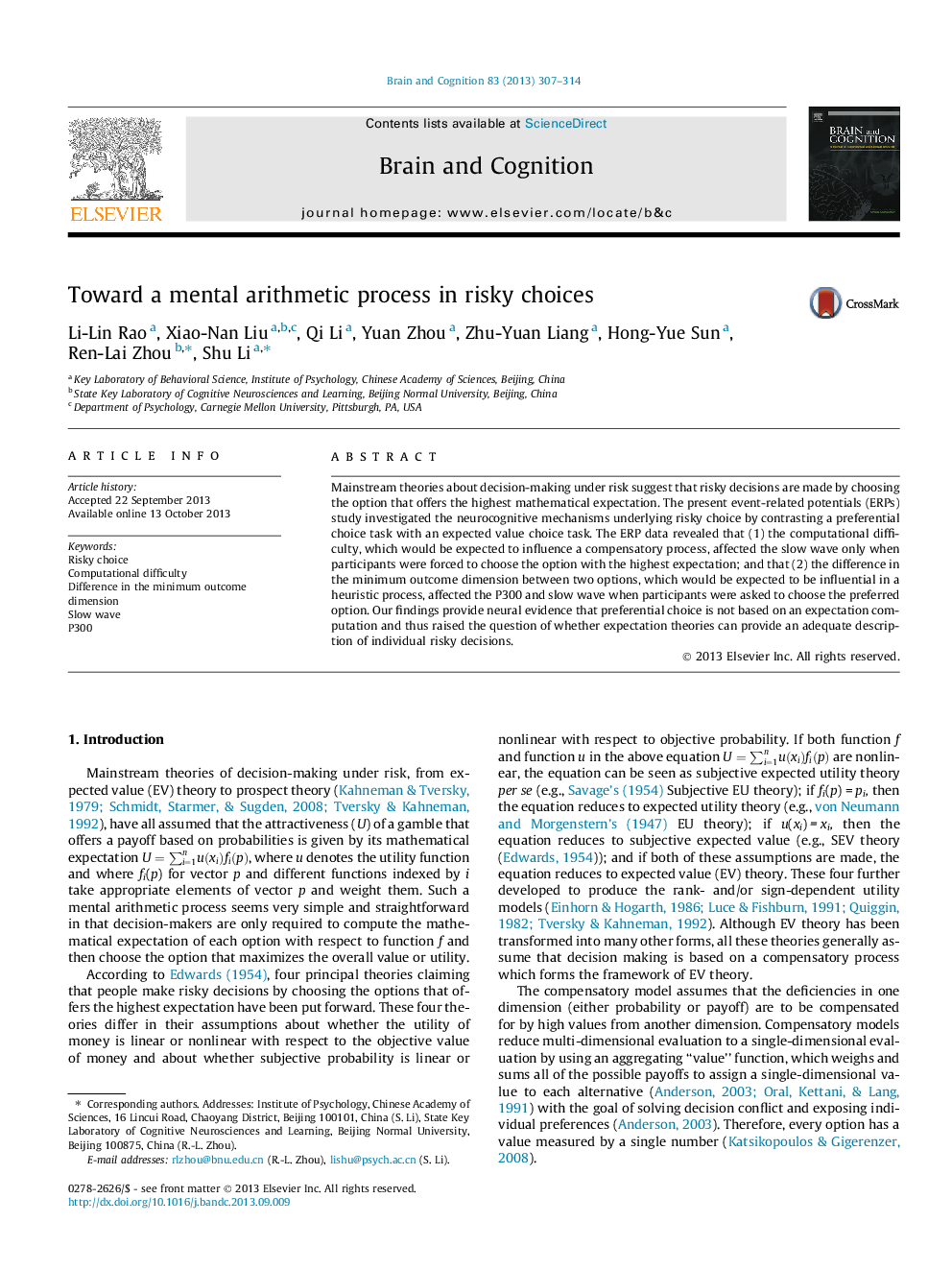| Article ID | Journal | Published Year | Pages | File Type |
|---|---|---|---|---|
| 924348 | Brain and Cognition | 2013 | 8 Pages |
•Computational difficulty does not influence ERP components in preferential choice.•Computational difficulty influences slow wave component in the expected value choice.•Difference in the minimum outcome dimension influences P300 in preferential choice.•Our findings suggest that risky choice may not be a compensatory process.
Mainstream theories about decision-making under risk suggest that risky decisions are made by choosing the option that offers the highest mathematical expectation. The present event-related potentials (ERPs) study investigated the neurocognitive mechanisms underlying risky choice by contrasting a preferential choice task with an expected value choice task. The ERP data revealed that (1) the computational difficulty, which would be expected to influence a compensatory process, affected the slow wave only when participants were forced to choose the option with the highest expectation; and that (2) the difference in the minimum outcome dimension between two options, which would be expected to be influential in a heuristic process, affected the P300 and slow wave when participants were asked to choose the preferred option. Our findings provide neural evidence that preferential choice is not based on an expectation computation and thus raised the question of whether expectation theories can provide an adequate description of individual risky decisions.
